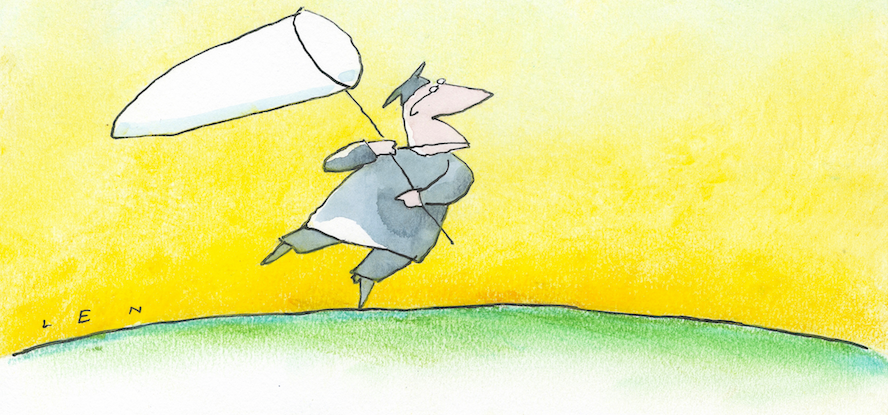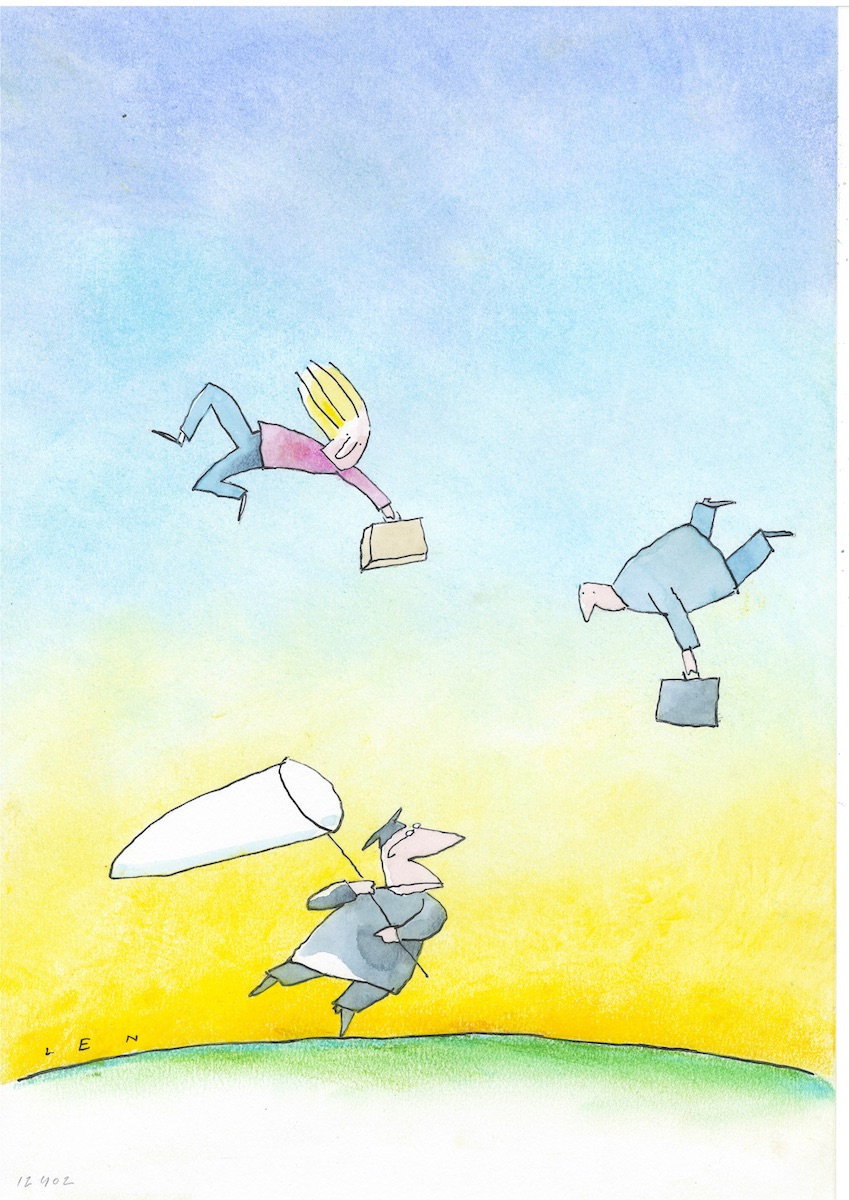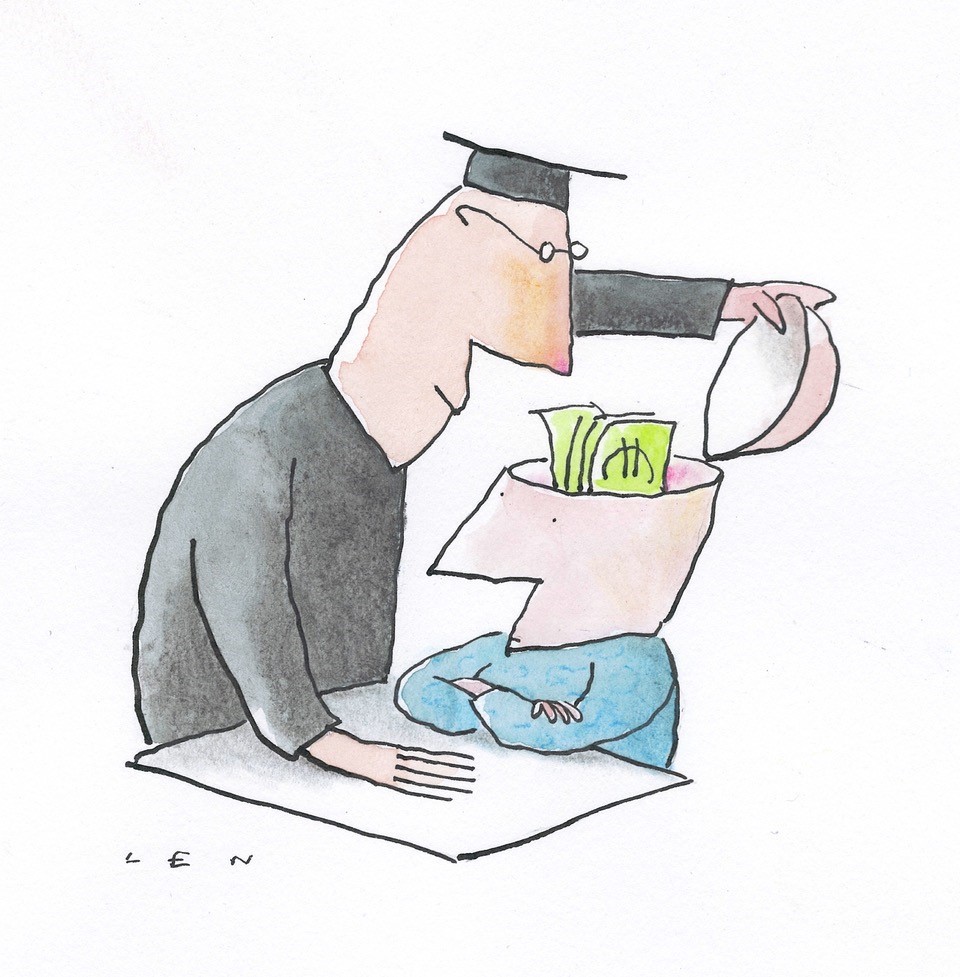Recruitment of foreign students is at odds with complaints about growth
Universities have been pushing for more legal options to curb the influx of foreign students for years. Nevertheless, private providers of expensive bridging programs that bring in foreign graduates are still welcome on campus.

Picture: Len Munnik
Once again, universities are attracting more students, although the growth is not as spectacular as last year when the student population grew by 8 percent. This year, 340.700 students are registered, according to provisional figures published by the Association of Universities (VSNU) at the beginning of November. A growth of 4 percent. This is due to the influx from abroad, which continues to grow. In total, almost 80 thousand international students are now studying at the thirteen Dutch universities, almost a quarter of the total.
The University of Amsterdam (UvA) is still growing slightly faster than the rest, with the number of students increasing by 6 percent. The university has more than 40 thousand students for the first time. In the past five years, almost 13 students have been added, the size of a small university such as Wageningen or Twente. Two thirds of the growth is accounted for by international students. Before long, the UvA will have more international students than Dutch students. This year, 40 percent of the intake for bachelor's programs and 60 percent of new master's students come from abroad.
The UvA can no longer cope with this growth, argued board chairman Geert ten Dam in the Parool. The room market is overheated, campuses are overcrowded and teachers and support staff are facing an increasing workload. 'The groups are getting bigger, lecturers have to supervise more theses, it is completely overflowing.' Without substantial overtime, employees can no longer complete the work, according to the chairman of the board. The limit has really been reached added she added in the university magazine Folia. 'The Hague must help us do something about the influx. This won't stop on its own.'
(The story continues below the illustration)

Picture: Len Munnik
Student break
Universities have presented themselves in recent years as victims of their own success. Studying in the Netherlands is too attractive. Dutch universities are high in the international rankings, the tuition fees for EU students are reasonable and there are hardly any entry restrictions. Because there is free movement of people within Europe, universities cannot refuse EU students who meet the admission requirements.
The VSNU has been lobbying for more legal options to stem the flow of international students for four years now. The only option universities have now is to put a student freeze on popular studies. But Dutch students are also the victims of this. That is why universities want the option of limiting only the number of study places on the English-language study routes. They were heard by outgoing Minister of Education Ingrid van Engelshoven. But the bill that makes a numerus clausus possible for English-language tracks has been shelved for almost a year due to the fall of the cabinet.
The powerlessness that universities pretend is questionable. Last August they announced that they would stop actively recruiting international students. Richly late, and moreover, the question is what such a recruitment freeze would entail. Universities may be less present at study grants abroad, but there were almost none last year due to the corona restrictions. They participate fully in virtual fairs and online recruitment events and they also recruit through their own social media channels and websites. And a number of universities in non-EU countries work with local recruiting agents who are paid per student referred.
The complaint is at odds with the persistence with which universities stick to the controversial transition years for international students who do not meet the Dutch prior education requirements.
Complaining about the lack of instruments to keep international students out is also at odds with the persistence with which universities stick to the controversial transition years for international students who do not meet the Dutch prior education requirements. Three years ago revealed the Education magazine that five universities and three universities of applied sciences have teamed up with the British recruitment agencies Study Group and Oncampus and the Australian Navitas. These companies bring inadmissible students to the Netherlands for a foundation year that provides access to a university bachelor's degree. That will cost them fourteen thousand to eighteen thousand euros, about double the tuition fees that students from outside the eu pay for a Dutch bachelor's degree. The bridging program is carried out by the companies, but is preferably offered on the campus of the Dutch university. That gives international students the feeling that they are already studying at a world-class university while they are on a commercial refresher program.
Rapids
The recruitment agencies are angling for many extra students thanks to their extensive network of agents. Australian Navitas, a partner of the University of Twente since 2019, has 125 education agents in XNUMX different countries, the company reports on its website. Eighty percent of Navitas students use such an agent.
In 2019, 37 percent of Twente's Bachelor's intake - approximately one thousand students - came from abroad. Hundreds of international students are added thanks to the Navitas bridging programme. At the start of it Twente Pathway as Navitas calls the preparatory year, it was agreed that 270 students would be enrolled each year. This year, 371 students have already started the bridging program.
The British company Oncampus has been organizing a preparatory year at the UvA since 2013. That collaboration came under fire last year after university magazine Folia showed that tricks are used to grant a visa to students who come to Amsterdam for the numerus fixus study Business Administration. The IND only issues a study permit for a preparatory year if a student is already registered for the follow-up study. This is not possible with a numerus fixus study because the selection only takes place after a student has successfully completed the preparatory year. That is why the UvA enrolls Oncampus students who want to do Business Administration with another economic study programme.
The publications in the Education magazine and Folia led to a series of parliamentary questions and an investigation by a national committee
The publications in the Onderwijsblad and Folia led to a series Parliamentary questions and an investigation by the National Commission overseeing adherence to the code of conduct established by universities and colleges to regulate the recruitment of international students. The committee established that universities and the private providers of the transition years are stretching the rules far too far. A preparatory year is intended for students who have a level that is equivalent to Dutch VWO, but who lack specific professional knowledge or who still need to brush up on their English. At Study Group, Oncampus and Navitas, the preparatory year has turned into a recruitment channel in which hundreds of international students are recruited at HAVO level. A quarter of the students do not successfully complete the transition year, which raises questions about the way in which the providers select students.
(The story continues below the illustration)

Picture: Len Munnik
Complaints submitted in September to the Education Inspectorate (in the possession of the Education Magazine) show that last year Navitas admitted a student with a diploma that, according to internationalization organization Nuffic, is comparable to the VMBO-TL level. Another Navitas student had a subject package of HAVO level, but grades were too low to be admitted to a Dutch HBO programme. These students should therefore never have been admitted to a bridging program that provides access to a university bachelor's degree.
Gap
Minister Van Engelshoven wants an end to the improper use of the preparatory year. Universities must apply stricter selection criteria so that admitting non-EU students with a HAVO-level diploma becomes an exception, she wrote in a letter to the House of Representatives at the beginning of January. Offering a preparatory year for a program with a numerus fixus must in any case come to an end, because that is contrary to the code of conduct.
A complicating factor is that the minister does not have much to say about the preparatory year because nothing is regulated in the Higher Education Act.
A complicating factor is that the minister does not have much to say about the preparatory year because nothing is regulated in the Higher Education Act. The pathways of Oncampus and Navitas therefore do not result in a recognized diploma. A gap in the law which means that the Education Inspectorate is not authorized to act against private providers that admit students at pre-vocational level. The minister is therefore dependent on stricter self-regulation by the institutions and they do not intend to give up the preparatory year just like that. A third of all countries in the world, including China, Russia and Indonesia, do not have a secondary school diploma at pre-university level. The havo level is the highest attainable there. “The preparatory year offers talented students from those countries the opportunity to study here,” says VSNU spokesperson Ruben Puylaert.
Under pressure from the minister, the universities have now drawn up stricter selection criteria. “Students with a HAVO diploma must have higher grades and the level requirements for English are also becoming higher,” says Puylaert. The new agreements are recorded in the code of conduct that is currently being evaluated.
cries for help
Despite the cries for help from board chairman Ten Dam towards The Hague, the UvA signs a new agreement with Oncampus. This takes into account the objections of the Minister and the Code of Conduct Committee. What exactly is in the contract has not been disclosed. In any case, the UvA interprets the agreement to stop recruiting for numerus fixus studies broadly. The Business Administration program still refers international students who do not meet the admission requirements to the Oncampus website. It states more clearly than before that the Oncampus program does prepare for this bachelor's degree, but that the number of study places is limited. Oncampus students therefore pay 18.375 euros for a program that does not guarantee admission to the chosen study programme.
The code of conduct committee must keep an eye on whether the Amsterdam interpretation is too broad and whether students of pre-vocational secondary education are admitted again. It is not yet clear how this should work. The Ministry of Education will monitor whether the stricter admission criteria will lead to less intake in the preparatory year and better transfer figures to the bachelor's degree, a spokesperson for the minister said. What should happen if that turns out not to be the case is a question for her successor.
This article comes from the December issue of the Education magazine, which is published eleven times a year AObmembers falls on the bus. Learn more about all the benefits of the AOb-membership? Look here.


